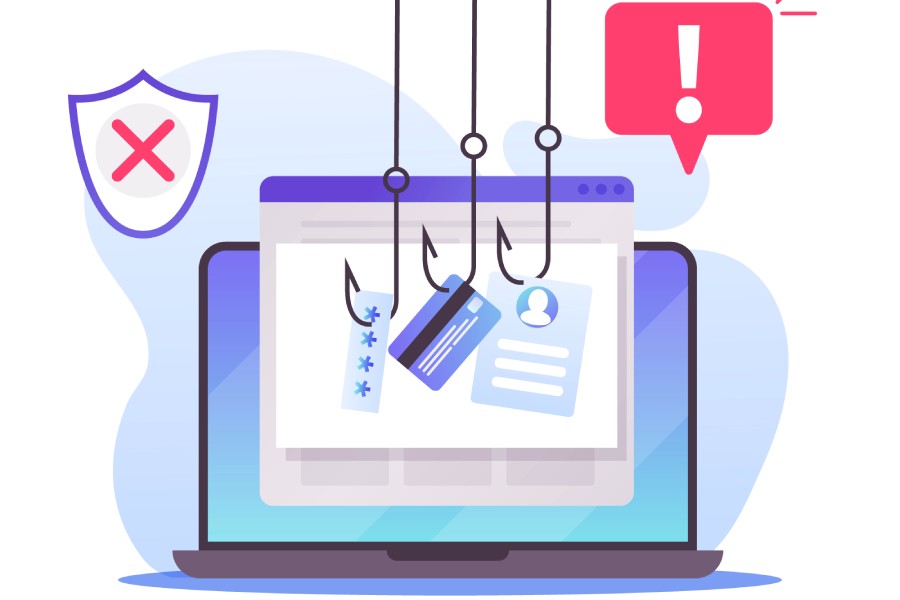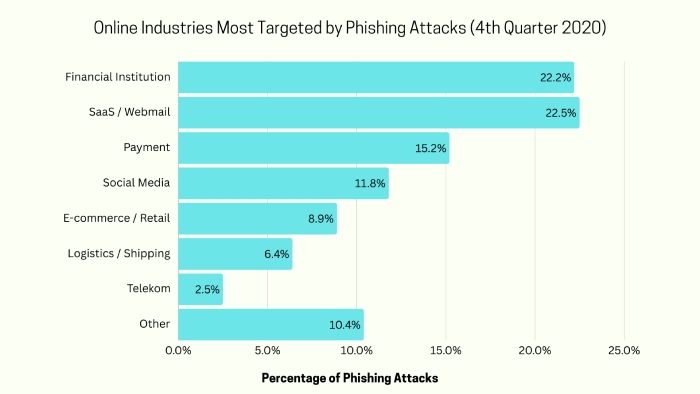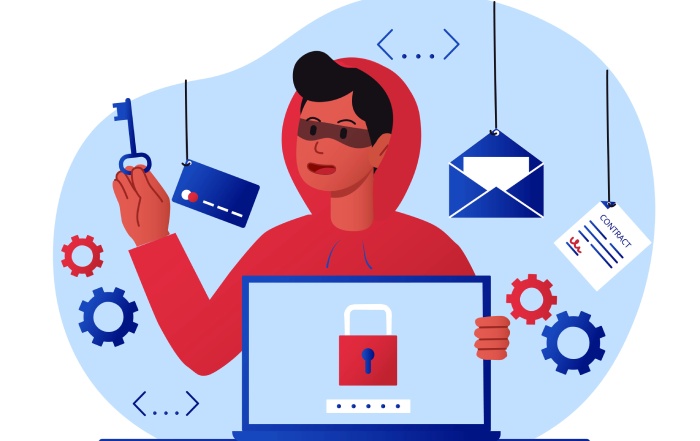Phishing is a social engineering exercise that plays on the psyche of the victim with the sole purpose of extracting as much critical information as possible. With this information, the con artists can manipulate data, take over networks, or steal financial credentials and identities. Organizations have to be aware of the menace at all times and keep their systems upgraded to counter the challenge. Phishing attacks on logistic companies are not a recent phenomenon. It has been around for a while. Among other organizations, it is a threat for logistic establishments too the world over.
The above statistics show the industrial sectors phishing attackers have most targeted. As per the graph, in the fourth quarter of 2020, logistics organizations have had a share of 6.4% of the total phishing attacks on various industries. Given the way the logistics establishments have grown and expanded, especially during the Pandemic, the rate of phishing attacks on them is likely to increase in the future.
Effects Of Phishing On Companies And Individuals
The phishing attempts and attacks on logistics organizations can negatively impact the business and its end-users in multiple ways.
The Impact On Business
It has been estimated that 93% of the UK organizations were targeted with malware, while the IT Security community of the United Kingdom reported a rise of 88% in phishing incidents. Most of these attacks were related to stealing data, and some of the sufferers were logistics companies.
Reputational Loss
Loss of reputation is one of the significant impacts of a phishing attack. A reputational failure is catastrophic for any organization. Translated into money, it is enormous, and it will take a lot of time and effort to reverse the effect. It takes years for organizations to build a reputation based on trust. A phishing attack can ruin that in a fraction of that time.
Loss Of Company Value
The reputational damage extends beyond the customer. The investor’s confidence in the brand and the company is shaken, which will have a cascading effect on its finances. No investor would want to keep their money in an establishment that is suffering from an image problem. The drastic drop in share prices is one of the ways the organization suffers.
Fines By Regulatory Authorities
On top of the financial loss and reputation loss, there are huge fines imposed by regulatory authorities. The Government of every country is stringent when it comes to protecting the consumer and investor. These fines also burden the organization, and it may take years before it may recover from the loss. Protecting customer data is of paramount importance, and any failure to do so will have drastic penalties imposed on the organization.
Disruption Of Business
Disruption of business for any organization is similar to sounding a death knell. For logistics providers, it is more so. The slightest change in cash flow has ill effects on these organizations, and phishing attacks can bring about that effect.
The Impact On End-users
The phishing attacks on logistics corporations affect their business and have a disastrous impact on their customers.
Financial Losses
The effect of a phishing attack on the customers of a logistics service can have an even more severe debilitating effect compared to the logistic companies themselves. The end-users may be individuals or other businesses whose activities may be interrupted due to the disruption in logistics, resulting in a severe financial setback for their business.
Identity Theft
Identity theft is a serious crime and often ends up worse for end-users. A phishing attack by malicious actors on a logistics corporation can provide access to confidential and sensitive customer information stored in the organization’s information systems and databases. The stolen identity is often misused to gain access to more critical data or top secret information. The vicious cycle keeps continuing. Furthermore, they may use the identity for obtaining other financial benefits by employing impersonation, which is one of the hallmarks of a phishing agent. They endanger the lives and careers of victims through social engineering tactics.
Learning From The Latest Phishing Hit
Phishing attacks in the logistics sphere may not be directly on the organizations themselves. Sometimes, a mass attack on its users could taint the reputation and interrupt the logistics organization’s business, besides creating trouble and financial losses to the end-users themselves. In one of the most recent and audacious phishing attacks related to the logistics domain, IT Security researchers have discovered that malicious actors targeted almost 10,000 mailboxes of end-users.
The attacks were targeted at Microsoft email users to steal credentials. The attackers spoof-phished the pages that were hosted on legitimate domains. The email titles and the subject line were enough to mask the real intention of the endeavor. The emails made hapless victims believe that they had come from DHL and FedEx. Since similar emails from DHL and FedEx usually keep appearing, it is quite normal for many users to follow the email instructions and act accordingly instead of looking for inconsistencies. Once they clicked on the provided link, it took them to a supposedly hosted file on Quip. The spoofed page impersonated the logistics giant and gained enough trust for users to continue with the process. They were then taken to a Microsoft Login portal page and asked to log in. The entire process was designed to harvest email addresses for later usage.
The phishing attack on DHL included an email campaign sent to the victims informing them of a parcel lying at the nearest pick-up point but could not be delivered due to an incorrect physical address. Subsequently, an HTML page opens and asks the recipient to type in their login credentials. As with the FedEx attack, this too would return an incorrect email notification, no matter what the information typed in is.
Tips For Users On Phishing Prevention And How To Keep Safe
Here are the general fundamental tips you should follow to prevent phishing attacks as above one and keep your information assets from falling into threat actors’ hands.
- Never open unsolicited emails or click on unknown links.
- Never discuss critical data over the phone with someone not entitled to know the information.
- It is pertinent that businesses undertake rigorous awareness sessions and training programs for their staff to make them aware of phishing pitfalls.
- The up-gradation of software and IT Security tools is a must.
- Anti-phishing and ransomware protection tools are a must for every organization and individual today.
Final Words
In a world connected by logistics, organizations must keep their wheels rolling at any cost. Phishing attacks can disrupt the business through their malicious adventures. Logistics companies must implement anti-phishing services within the organization and educate their customers of the same. The more one is aware of pitfalls, the lesser the chances of getting scammed.



